GOLD Learning Tongue-Tie Online Symposium 2023
Caring for a family with a tongue-tied baby requires specialized knowledge and skills. Join us at the GOLD Learning Online Tongue-Tie Symposium 2023 to refine your fundamental skills by learning about how to assess for tongue-tie and identify differential diagnoses, the importance of anticipatory guidance and collaborative care, post frenotomy wound management and bodily autonomy, activities for supporting optimal oral function and creating a clinical care plan that works for the family.
You will also have the opportunity to dive deeper into the topic of tongue-tie with a look at the vagus nerve and its impact, trauma informed and family centered care, the impact of tongue-tie on swallowing and the implications for starting solids, a closer look at the anatomy and physiology of the lingual frenulum and complex case studies and how to determine what to tackle first.
Looking to sign up as a Group of 10 or more? Contact us at [email protected] to learn more or submit your group registration.


Effath Yasmin is India's leading Biodynamic Craniosacral Therapist, an award winning International Board Certified Lactation Consultant & a Documentary Film Maker. She is also an International Speaker, an Author & a Bach Flower Practitioner.
Her special interests lie in Infant Oral, Sucking & Airway Dysfunction, Tongue Tie, Birth Trauma, Craniofacial Development and a range of chronic physical and mental dis-eases & quantum energy phenomenon. She applies these sciences into Life Coaching, Inner Child Healing and Parenting. Her approach stems from fundamental truth of human organism is complete and self-regulatory and treatment & counselling approach is by deep listening & true empathy to mind body and spirit rather than by intervention.
She currently sits on several national & international professional boards.
She has spear-headed & dedicated her life to many projects with a central mission of advocacy, education and awareness for integrative multidisciplinary wellness approach worldwide. Her work has been published in the International Journals & a textbook and she writes extensively on print and digital media on the subjects of Breastfeeding, Tongue Tie, Parenting & Health related subjects.
Her international award winning film 'Untying Breastfeeding' exposes the glaring unseen obstacles to Birth & Breastfeeding & early parenting that can help restore motherhood and has been widely celebrated over 1500 Cities worldwide. She is currently pursuing her Ph.D. in Metaphysical Sciences.
Topic: Rethinking Surgical Tools - Infant Frenotomy & Pain - [View Abstract]
Topic: Trauma Informed Care in Clinical Infant Oral Assessment: Understanding Body Autonomy - [View Abstract]
1: Define body autonomy & trauma.
2: Describe key principles of performing a physical oral examination or wound care management within the framework of body autonomy to infants, particularly those with a history of birth trauma.
3: Describe trauma-informed gentle communication skills both verbal and nonverbal language, and maneuvers to communicate respect of body’s autonomy in order to restore a sense of safety, trust & connection during the clinical oral examination of infants.
The most talked about discussions amongst parents or professional groups across the world is post frenotomy wound management. In the last 15-20 years of development, the field of oral restrictions has yet to see an evidence-based approach or even just a global consensus on approaches and their efficacy in wound management. Therefore lactation consultants, dentists, and surgeons have been using their clinical reasoning to choose the methods and protocols for individual breastfeeding dyads. Nevertheless, the current unregulated wound management protocols have been often reported as traumatic experiences for infants, parents, and care providers. Additionally, a physical oral examination of an infant during the assessment, evaluation, and treatment, and rehabilitation of oral restrictions is essential and vital in an IBCLC clinical practice. It's often seen as a ‘necessary evil’ in clinical work. Some infants may be at risk of reattachment and/or trauma which can have lifelong impacts such as triggers for past memories, anxiety, distress or discomfort, or even PTSD. This can lead to oral aversion symptoms, complete refusal to latch and breastfeed, turning away from food, and gagging, coughing, and choking. Therefore, a respectable trauma-informed approach to oral examination and wound management is based on the fundamental principles of respect for bodily autonomy ensuing a sense of safety, trust, and connection.


Gina has been assisting breastfeeding mothers for over 20 years, and now through telehealth all over the world. She knows that while most pregnant mothers expect to breastfeed, very few receive proper preparation for the difficulties and the rollercoaster of emotions when there are problems.
When Gina had her first baby, like many new mothers she was overwhelmed by conflicting information: at the hospital, the pediatrician’s, and from well-meaning friends and family.
Her appreciation of the volunteer support she received led her to want to “pay it forward” and help others. She first trained as a volunteer LLL Leader in Houston, Texas, then as a birth doula in Amsterdam, The Netherlands, and finally sat for the exam to become an IBCLC in Seville, Spain. She continues to lead monthly breastfeeding support meetings online and in-person.
Gina believes that all mothers deserve quality emotional and educational support. It should not be just a matter of good luck. She's dedicated to giving effective guidance and caring support with real results. Her greatest satisfaction is the joy of seeing that look on both mothers’ and babies’ faces that says: Just what I always wanted!
1: List at least 3 key points to share with parents to help prepare them for their infant's tongue-tie release.
2: Describe indicators that an infant is ready for a tongue-tie release.
3: List at least 3 key points to share with parents to help prepare them for caring for their infant after tongue-tie release.
When tethered oral tissues (TOTS) are impacting feeding, a care plan must be tailored to the unique circumstances of the parent(s), the baby and the reality of their environment. Parents are often feeling overwhelmed and desperate and from the moment of our initial consult, our nurturing care and guidance provide safety and relaxation. When parents feel understood, they often cry and release a massive amount of stress. The flow of oxytocin and endorphins can soothe their emotional pain as they begin to trust that help is possible. We calmly identify areas needing attention, we prioritise them, and we find out what is most easily doable for the parent(s) among the top priorities. Each step of the care plan offers choices (in regards to feeding, positioning, milk supply, exercises, etc) that will positively impact both the wellbeing and the feeding experience. We help parents to understand that feeding is a whole body activity and that an improvement in any area gives ripples of improvement in the others. We make adjustments as needed, and the changes begin to flourish. We replace fear and confusion with confidence and flexibility. Parents understand “the why” of each step and begin to enjoy that they themselves are driving the positive change!
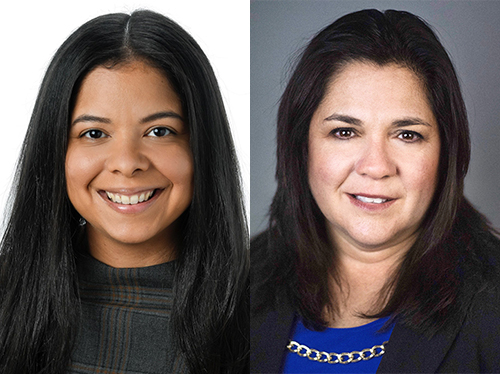

Shana Quarrie is an Occupational Therapist for over 12 years and a Certified Lactation Counselor for 5 years and now an IBCLC as of June 2023. She has worked in the pediatric setting for over a decade and in one of the largest Level 4 NICUs in the United States. Shana is one of the Co-Founders of Baby B.L.I.S.S. Feeding Collaborative of Central Florida a private practice formed with two RN, IBCLC’s. They help families prenatally, antepartum and postpartum navigate growth development and feeding journey.
Shana specializes in the medically complex infant such as 23 week preemies, brachial plexus injuries and any neurodevelopmental delays. Shana finds great improvement when combining neurodevelopmental techniques into her practice for optimal feeding and development outcomes. Her mantra is to help families thrive not just in her clinic during their sessions but in their natural environment.
Annette Leary is a registered nurse with over 35 years of experience working in Maternal Child Health (pediatrics, postpartum, home health care and level 2 NICU). She became an IBCLC in 1995. Annette owns a private practice providing home, office, and virtual visits: Orlando Lactation and Wellness Services. She formed a collaboration company Baby B.L.I.S.S. Central Florida Feeding Collaborative, with an occupational therapist and IBCLC. They help families prenatally, antepartum and post partum navigate the growth, development and feeding journey of their children.
Annette began her Upledger Craniosacral therapy training in 2015, taking advanced maternal and pediatric specialty classes. She finds great improvement incorporating craniosacral therapy techniques with lactation consulting. Helping Families Latch onto Parenting has always been Annette's mantra.
1: List 2 factors that may affect infant feeding state.
2: Explain 2 oral habilitation recommendations.
3:List 2 post release pain management recommendations.
4: Describe 1 factor that may contraindicate a frenotomy.
Parents are seeking answers to their baby’s feeding difficulties. They verbalize that they are confused by conflicting and contradicting information. They seek opinions from the internet, social media, friends and health care providers that further frustrate them. These families often have to self-navigate this feeding and oral health journey for their baby. They are seeking a functional assessment of the baby’s ability to organize the baby’s suck, swallow and breath pattern to get a differential analysis. Finding providers who can administer the assessment and provide lactation support to the feeding difficulties often means multiple appointments, different offices, and prolonged time. Collaborative practice models place a focus on co-evaluations, co-treatments and care plans to provide the parents with a comprehensive guide of solutions and tools. This allows them to facilitate their baby’s oral motor habilitation and improve their feeding abilities in a timely manner within a single location. These complete assessments, therapeutic modalities and care plans help families feel empowered to make the best decisions on whether to proceed with a frenotomy or not. This program will include 2 case reviews of a family who chose to do the frenotomy and one who did not and how the pre and post frenotomy support care assisted these decisions.
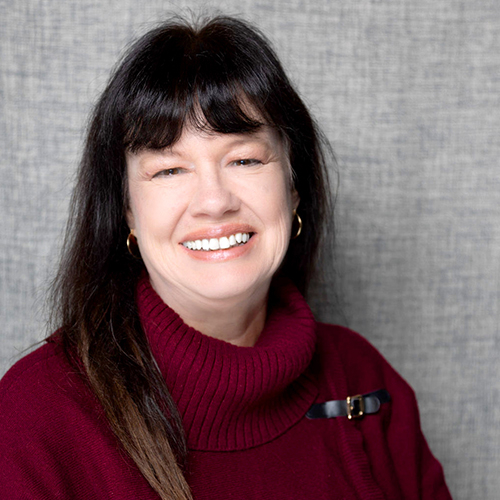

Adrienne Guirguis, a board certified lactation consultant has over 25 years experience in helping breastfeeding infants and their families. She began her journey into the world of lactation after struggling to breastfeed her oldest son. She became an accredited La Leche League leader and was able to help babies breastfeed. Her experience with La Leche League led Adrienne to become a International Board Certified Lactation Consultant (IBCLC). She has been board certified for 20 years and has experience with a wide range of problems that may be experienced by new families. Adrienne has worked in hospital for over 10 years and then worked in community health for many years. She is a clinical practitioner, working hands on with families to improve feeding outcomes.
Adrienne continues her lactation education, constantly attending conferences and courses to stay up-to-date on the information and skills needed to benefit those who most need breastfeeding help. In 2022 Adrienne completed the Holistic Integrative/Functional Lactation course, a year long program followed by a residency. This course has increased her skills to provide the best care for the families with whom she works.
Adrienne also is an educator, working within the community to teach others the skills necessary to become lactation counselors and eventually board certified lactation consultants.
1: List at least 3 challenges that parents of tongue-tied babies may face.
2: Describe how to counsel families on why a functional assessment is necessary to a diagnosis of ankyloglossia.
3: Describe how to educate families in a compassionate way on what to expect from the tongue tie release and the pre and post work necessary for a successful outcome of the procedure.
Parents with infants who are having breastfeeding issues due to tongue tie, face a complicated journey of conflicting information and differing opinions, complicated care plans and challenging emotions. Providing anticipatory guidance about the education providers receive on tongue tie, the many faceted symptoms of tongue tie for both parent and infant, the functional assessment versus the appearance of tongue and compensatory behaviors are all important for the parents to be able to make informed decisions and successfully navigate their way back to successful breastfeeding. Learn more about how to provide necessary information in a compassionate and useful way to already overwhelmed parents.


Melissa Cole, MS, IBCLC, RLC is a board certified lactation consultant, neonatal oral-motor assessment professional, and clinical herbalist in private practice. Melissa has been passionate about providing comprehensive, holistic lactation support and improving the level of clinical lactation skills for health professionals. She enjoys teaching, researching and writing about wellness and lactation-related topics. Melissa holds a bachelor of science degree in maternal child health and lactation consulting and her master’s work is in therapeutic, clinical herbalism. Melissa actively conducts research and collaborates with several lactation and health care professional associations. Before pursuing her current path, Melissa’s background was in education and cultural arts, which has served her well in her work as a lactation consultant and healthcare educator. She loves living, working and playing in the beautiful Pacific Northwest with her 3 children.
Topic: Beyond Fenugreek: An Individualized Approach to Dietary and Herbal Galactagogues - [View Abstract]
Topic: Beyond the Basics of Latch: Support Strategies for Helping Babies when the Basics Aren’t Enough - [View Abstract]
Topic: Common Infant Digestive Health Concerns and Useful Support Strategies - [View Abstract]
Topic: Connection and Care: Virtual Support for Tongue-Tied Infants - [View Abstract]
Topic: Feeding is Movement: Activities for Supporting Optimal Infant Oral Function - [View Abstract]
Topic: Infant Gut Health: Common Concerns and Useful Support Strategies - [View Abstract]
Topic: Infant Oral Assessment: Exploring Anatomy and Function Beyond the Frenulum - [View Abstract]
Topic: Low Milk Production Detective Work: Assessment and Care Plan Considerations - [View Abstract]
Topic: Nature’s Nurturers: Plant Medicine for Perinatal Mental Health - [View Abstract]
Topic: New Thoughts on Infant Pre and Post-Frenotomy Care - [View Abstract]
Topic: Placenta Medicine as a Galactogogue: Tradition or Trend? - [View Abstract]
Topic: Thinking Critically About the Use of Clinical Lactation Tools - [View Abstract]
Topic: Will It Hurt? Frenotomy Aftercare Strategies to Optimize Healing Outcomes for the Newborn - [View Abstract]
1: Describe specific areas of infant oral function that may benefit from supportive exercises and activities based on oral assessment findings.
2: Describe exercises and techniques that support function of the lips, jaw, cheeks, tongue , and sucking patterns.
3: List at least 2 contraindications for oral work and when to refer.
Feeding is movement and some babies need personalized help when it comes to oral function and skills. This presentation covers critical thinking strategies around basic activities to support optimal infant oral function. We will review available evidence, contraindications, and targeted activities. We will discuss when and why to consider a variety of activities for the jaw, cheeks, tongue, palate, lips, and tongue. Learners will also recognize oral function concerns that require referral and connection to other allied health professionals.


Justin is a Consultant Paediatrician who has worked in both the UK and Ireland. He has had an interest in Tongue Ties for over 15 years and has created multi-disciplinary pathways of care. He is Medical Director of the National Tongue Tie Centre in County Tipperary, Ireland which he established with Kate Roche, a Chartered Physiotherapist, in 2017. There he and the team provide comprehensive care for infants, children and adults with tethered oral tissues.
1: Describe the normal anatomy of the tongue.
2: Explain how ankyloglossia affects the normal function of the tongue.
3: Describe how to achieve a complete release of ankyloglossia in order to optimise function and why supportive therapies are vital to the outcome.
The management of tongue tie has many approaches. In this presentation we will explore the anatomy and physiology of normal tongue frenulae and that of ankyloglossia. How the structures affect function and how to manage them to optimise function. We will also discuss the problems that can be seen following incomplete release and reattachment. We will also cover complications during surgery and management options.
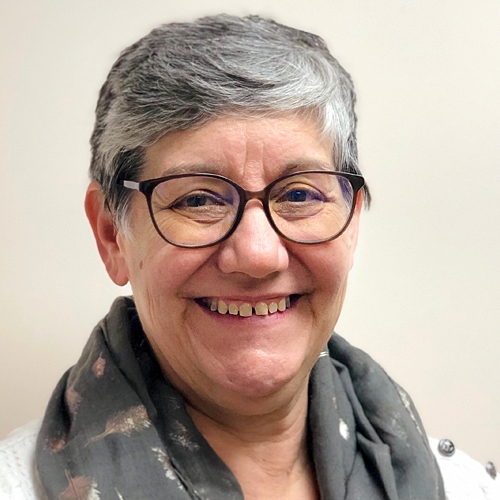

Dr. Sharon A. Vallone is a graduate of Rutgers University (AB Microbiology 1978) and New York Chiropractic College (1986). She completed her Diplomate in Clinical Chiropractic Pediatrics in 1996 through Palmer College and received her appointment as Fellow in Clinical Chiropractic Pediatrics in 2003. Dr. Vallone has a private practice limited to high risk pregnancies and challenged children in Connecticut and is currently the Chair of the Board of Kentuckiana Children’s Center in Louisville, KY and past Vice Chair of the International Chiropractic Association’s Council Pediatric Council. She is an international speaker, author, and editor of the Journal of Clinical Chiropractic Pediatrics. Sharon brings 33+ years of pediatric chiropractic experience with a primary interest in pregnancy, birth trauma, breastfeeding and problems with infant /toddler neurodevelopment.
Topic: Wondering about “The Wanderer?” The Vagus and Ankyloglossia - [View Abstract]
1: Describe the form and function of the Vagus Nerve (CN X).
2: Explain how the presence of ankyloglossia and it's associated changes in structure and function in the breastfeeding neonate can alter vagal tone.
3: Describe the concomitant implications of ankyloglossia to vagal function and a successful breastfeeding relationship.
Regulation of the autonomic nervous system is critical for the successful breastfeeding relationship of the dyad. This 1 hour lecture will first, review the anatomy and physiology of the Vagus Nerve (Cranial Nerve X) as it might potentially influence breastfeeding. It will then explore the myriad of ways that the presence of ankyloglossia could potentially influence dysregulation of vagal tone resulting in a myriad of complaints often seen in both members of the dyad when the neonate has ankyloglossia.
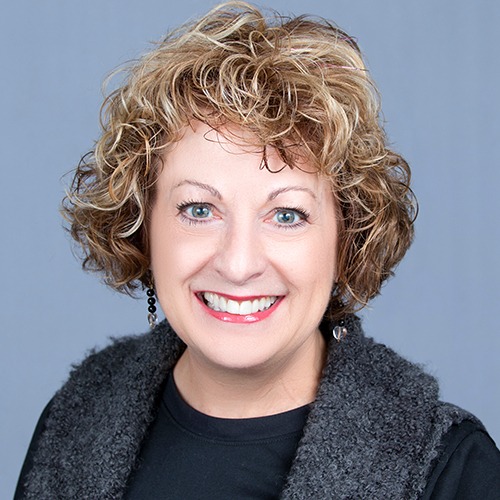

Kathy Parkes is a sought-after speaker and webinar presenter as well as a published author. She has lived all over the world, settling in San Antonio, Texas after her Air Force husband retired. Kathy is a Registered Nurse with a Masters in Nursing Education and received her International Board Certified Lactation Consultant designation in 1992. Her private practice, Breastfeeding Perspectives, adds to her over 30 years of lactation experiences, which include WIC staff and clients, in-patient hospital work on L&D, postpartum, and NICU, taking a hospital to Baby-Friendly designation, setting up a lactation visitation program for both a home health agency and for the largest birth doula organization in San Antonio, and providing home and office lactation visits for private clients. She specializes in tethered oral tissues (tongue-and-lip ties), milk supply problems, multiples, and preterm/late preterm infants.
On the fun side, Kathy met her husband of 47 years as she was jumping out of the airplane he was flying. (You could say she fell for him!) She loves animals, traveling, and gardening. Most of all, she loves teaching others about breastfeeding.
Topic: How to Start a Private Lactation Practice - [View Abstract]
Topic: I QUIT!! Burnout, compassion fatigue, and self-care for the healthcare professional - [View Abstract]
Topic: Lactation Choices Following Pre-and-perinatal Loss - [View Abstract]
Topic: Powerful Relationships: How Babies (and Parents) Learn To Love - [View Abstract]
1: Name at least two (2) frenotomy assessment scoring tools to use with infants in their practice.
2: Discuss at least three (3) possible effects of ankyloglossia for infants.
3: List at least two (2) comorbidities that are possible in infants with ankyloglossia.
Conservative estimations report that the number of frenotomies globally has tripled in the past 10 years. Breastfeeding/chestfeeding parents seek help on the internet, social media, support groups, lactation consultants, physicians, midwives, and other healthcare professionals and are frequently sent straight to a release provider without the care of the other providers. However, a tongue or lip tie is not always the cause of the feeding problems the dyad is experiencing. This session will provide information on assessment, diagnostic tools, comorbidities, treatments, and complicated case studies to broaden your knowledge about ankyloglossia.
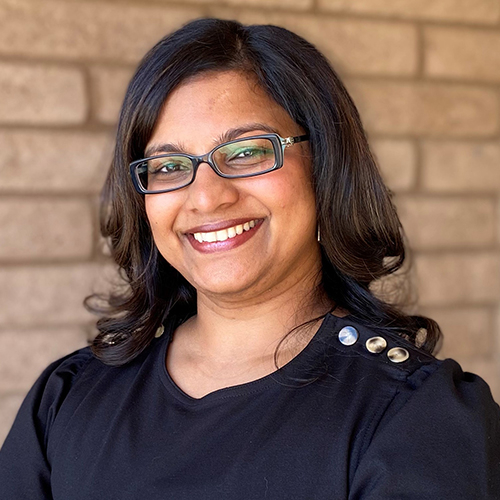

Ramya Kumar is an ASHA certified Speech Language Pathologist specializing in infant and pediatric feeding disorders while practicing in a Level 3 NICU and outpatient settings in Phoenix, AZ. She is a Board Certified Specialist in Swallowing & Swallowing Disorders, Certified Neonatal Therapist, International Board Certified Lactation Consultant, Neonatal Touch & Massage Certified Therapist & has completed the Trauma Informed Professional Certificate. Ramya is an internationally sought out speaker & clinical mentor on the topic of neuroprotective care in the NICU, Pediatric Feeding Disorders and Tethered Oral Tissues. Ramya is passionate about helping families create mealtime success through a whole-body lens. More recently, Ramya has been serving as a NICU Developmental Coordinator championing changes in unit culture, system-wide policy development and supporting transition of NICU families to community based programs. She has also co-founded Arizona NICU Follow-Up Specialists, a community resource supporting NICU grads and their families as they transition from hospital to home.
Topic: Trauma Informed and Family Centered Care! Keeping the Family Unit at the Center of a Tongue-Tie Treatment Model - [View Abstract]
1: List the four components of family centered care.
2: List three ways to apply trauma informed care to support a family who is caring for a child with feeding difficulties.
3: List three challenges that parents face when caring for a baby with tethered oral tissues.
Research repeatedly tells us that families experience significant levels of stress, fear and fatigue when navigating challenges with feeding their infant. These experiences have a significant impact on their well-being, negatively affecting both physical and emotional health. Compound this with the need to navigate information and emotions that surround surgical intervention like tongue tie releases and the subsequent impact on their child’s comfort and pain as well as fear about success after a release is completed. Parental involvement in the care of their infant’s feeding plan is essential for protecting their identity roles, decreasing risk of depression and anxiety, and increasing parent confidence and competence in caring for their child (Obeidat,2009). Health professionals have a crucial role to play in understanding and implementing a trauma informed, family centered care model when planning the timing of a tongue tie release and supporting the family through the journey. This session will highlight the four core concepts of family centered care as well as tenets of trauma informed care and ways to utilize this during the various stages of a tongue tie evaluation. We will also cover strategies to minimize trauma recurrence and empowering parents and caregivers throughout the process.
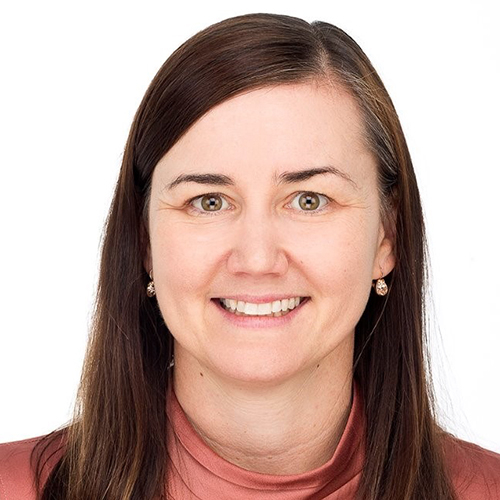

Dr. Sharon Smart is a dedicated and accomplished Lecturer in the Curtin School of Allied Health. With over a decade of experience, Dr Smart has a proven track record of coordinating and teaching undergraduate and postgraduate units in paediatric speech, language, feeding and swallowing disorders.
Dr. Smart has made significant contributions to the study of infant feeding, swallowing disorders in children, tongue-tie, and paediatric speech and language development. Her passion for translating clinical problems into research topics has improved the lives of countless children and their families.
In addition to her research, Sharon is committed to educating the next generation of health professionals. She takes pride in teaching evidence-based assessment and intervention practices, empowering students and clinicians to become skilled and compassionate practitioners.
Dr. Smart serves as a board member on two organisations: the Australasian Society of Tongue and Lip Tie (ASTLIT) and the International Consortium of Ankylofrenula Professionals (ICAP). As a board member, Sharon contributes her expertise and leadership to help guide these organisations in achieving their missions.
1: Recite current definitions of tongue-tie, incidence, and scope of practice.
2: Describe the anatomy and physiology of swallowing and identify the potential impacts of a restricted lingual frenulum on this process.
3: Explain the typical development of oral motor skills during breastfeeding and transition to solids and describe the impact that tongue-tie can have on the introduction of solid foods, as well as the potential challenges with chewing and swallowing that can arise as a result.
4. List at least 3 signs and symptoms of tongue-tie and its impact on swallowing, breastfeeding, and starting solids in infants and young children.
5. Describe how to conduct a thorough assessment of lingual frenulum appearance and function to diagnose tongue-tie, including the examination of the infant's mouth and feeding patterns, and clinical assessment tools available.
6. Explain non-surgical and surgical treatment options and referral pathways and recognize when referral to another professionals is required for infants and young children with tongue-tie.
Infants and children with tongue-tie can have difficulty swallowing, poor breastfeeding latch, and difficulty transitioning to solid foods. The impact of tongue-tie on these functions can have long-lasting effects on a child's development and well-being. This presentation will include discussion on the anatomy and physiology of swallowing and how it can be impacted by a restricted lingual frenulum. It will include discussion on the typical development of oral motor skills during breastfeeding and transition to solids, and the impact that tongue-tie can contribute to the introduction of solid foods, and challenges with chewing and swallowing. Overall, this presentation will aim to increase your understanding the impact of tongue-tie on feeding and swallowing which is crucial for healthcare professionals working with infants and young children to improve outcomes for both the child and family.
Accreditation
CERPs - Continuing Education Recognition Points
Applicable to IBCLC Lactation Consultants, Certified Lactation Consultants (CLCs), CBEs, CLE, Doulas & Birth Educators. GOLD Conferences has been designated as a Long Term Provider of CERPs by IBLCE--Approval #CLT114-07. This program is approved for 10 L-CERPs.
CMEs - Continuing Medical Education credits for Physicians & Nurses
The AAFP has reviewed GOLD Learning Tongue-Tie Online Symposium 2023, and deemed it acceptable for AAFP credit. Term of approval is from 09/11/2023 to 09/11/2024. Physicians should claim only the credit commensurate with the extent of their participation in the activity. This program is approved for 10 AAFP Prescribed CME credits.
ASHA - Professional Development Hours for Speech-Language Pathologists
As per ASHA, this activity qualifies for 10 PDHs. Activities are accepted as PDHs if they contribute to your professional development and will lead to acquiring and enhancing skills and knowledge required for independent audiology and SLP practice. Please review ASHA's Acceptable Activities for Professional Development for more information.
Dietetic CPEUs - Continuing Professional Education Units
Applicable to Dieticians & Nutritionists, this program is approved for 10 Dietetic CPEUs by the Commission on Dietetic Registration, the credentialing agency for the Academy of Nutrition and Dietetics.
If you have already participated in this program, you are not eligible to receive additional credits for viewing it again. Please send us an email to [email protected] if you have any questions.
Tags / Categories
(IBCLC) Clinical Skills, (IBCLC) Education and Communication, (IBCLC) Infant, (IBCLC) Pathology, (Prof) Speech Language Pathologist, Bodywork for the Tongue Tied Infant, Breastfeeding the Tongue Tied Infant, Differential Diagnosis & Management, Frenotomy & Tongue Tie Treatment, Pre & Post Care, Tongue & Lip Tie Assessment, Tongue-tie, Lip Tie & Structure
How much time do I have to view the presentations?
- The viewing time will be specified for each product. When you purchase multiple items in your cart, the viewing time becomes CUMULATIVE. Ex. Lecture 1= 2 weeks and Lecture Pack 2 = 4 Weeks, you will have a total of 6 weeks viewing time for ALL the presentations made in that purchase.
- Time for viewing the talks begins once you purchase the product. For Live Webinars & Symposiums, the viewing period begins from when the live event takes place. Presentations can be accessed 24/7 and can be viewed as many times as you like during the viewing period.
What are bundled lectures?
- Presentations may be available individually or via a bundled package. Bundled lectures are a set of lectures that have been put together based on a specific category or topic. Some lectures will be available in both individual and lecture form, whereas others will be available only via a bundled lecture pack.
Will there be Handouts?
- YES! Each lecture comes with a PDF handout provided by the Speaker.
Some lectures include a Q&A, what does that mean?
- During our online conferences, presentations that occur live are also followed by a short 15 minute Question & Answer Session. The Speaker addresses questions that were posted by Delegates during the presentation. We include the recording of these Q&A Sessions as a bonus for you.
How can I receive a Certificate?
- If this presentation offers a certificate, once you are done viewing the lecture or the lectures within a bundle, submit your attendance record in order to be able to download your certificate. You'll be able to see which credits are offered for the lecture by hovering over the "Credits Available" link within the "Speakers & Topics" tab.
Professionals that selected this package also viewed

|
|

|












